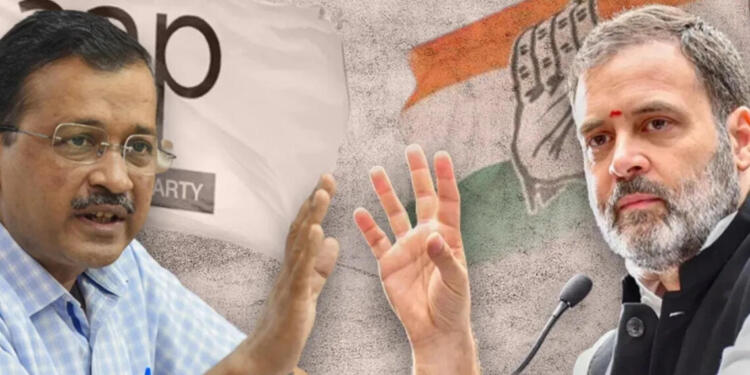In the aftermath of the Delhi electoral setback, AAP severed its ties with Congress. The Lok Sabha election outcomes have reignited political upheaval. AAP faced a resounding loss across all seven Delhi constituencies, prompting the party to dissolve its electoral pact with Congress. This move signals a pivotal juncture, shedding light on the strategic missteps and internal discord within both factions.
Election Fallout: A Closer Look
Despite concerted endeavors by AAP and Congress in Delhi, neither secured a single seat. This outcome has exacerbated disillusionment among party members and leadership. A pivotal gathering convened at Chief Minister Arvind Kejriwal’s residence, where legislators deliberated on forthcoming strategies.
Future Courses of Action
Following the meeting, State Coordinator Gopal Rai emphasized the party’s intention to accelerate developmental initiatives post the conclusion of the election code of conduct. He disclosed plans for a state officials’ meeting on June 13 to chart future courses of action. This initiative underscores the party’s commitment to introspection and progress.
The defeat in Delhi has spurred AAP to introspect and evolve. It has prompted a reevaluation of the party’s electoral strategies and organizational effectiveness. Despite the setback, AAP remains steadfast in its commitment to serving the people of Delhi and advancing its agenda for inclusive governance.
Alliance Dissolution: Causes and Ramifications
The termination of the AAP-Congress alliance may stem from various factors. Both parties’ failure to transfer vote banks during the Lok Sabha elections resulted in defeat. Additionally, a lack of consensus among alliance leaders exacerbated the split. This defeat has prompted scrutiny of the party’s strategic acumen, underscoring the imperative of not solely relying on alliances but also consolidating voter support and trust.
The dissolution of the alliance with Congress marks a significant shift in AAP’s political strategy. It reflects the party’s determination to chart its own course and prioritize its core principles and objectives. While alliances can be beneficial in electoral politics, AAP’s decision underscores its commitment to maintaining its autonomy and integrity.
AAP’s Roadmap Ahead
In anticipation of forthcoming Assembly elections, AAP must recalibrate its strategies. The slated meeting on June 13 will see extensive deliberations among the party’s state officials regarding the impending electoral blueprint. Inclusivity characterizes this meeting, with regional-level workers also slated to participate.
AAP’s upcoming strategy will likely focus on grassroots mobilization and outreach efforts. The party recognizes the importance of connecting with voters at the local level and addressing their concerns and aspirations. By engaging with communities and building strong grassroots networks, AAP aims to strengthen its electoral prospects and broaden its support base.
The current scenario presents a formidable challenge for AAP, with prominent figures like Kejriwal under the cloud of corruption allegations, casting a shadow over the party’s reputation. The public scrutiny intensifies as the party navigates through these accusations, making it imperative for AAP to handle the situation with utmost transparency and accountability.
The manner in which AAP addresses these allegations will play a crucial role in shaping public perception and trust in the party. As AAP strives to regain its credibility, it must adopt measures that demonstrate its unwavering commitment to ethical governance and integrity. Only through sincere efforts to confront these challenges head-on and uphold the values of transparency can AAP hope to restore public faith and strengthen its position in the political arena.
In conclusion, AAP’s decision to dissolve its alliance with Congress marks a significant development in the political landscape of Delhi. It reflects the party’s commitment to charting its own path and prioritizing the interests of the people. As AAP prepares for future electoral battles, it must learn from past mistakes, forge ahead with determination, and uphold its core values of integrity, transparency, and inclusive governance.
ALSO READ: Entry of Separatists in Parliament: Victory of Democracy or What?
























